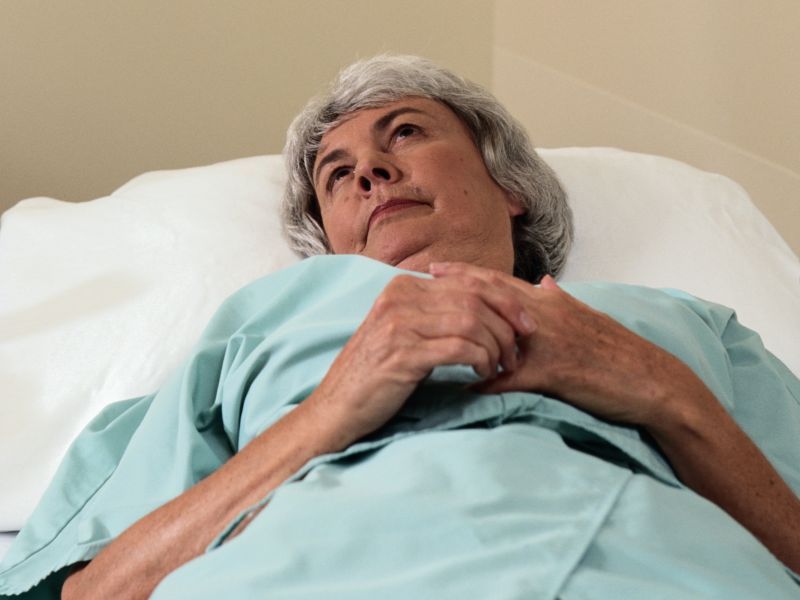By Steven Reinberg
HealthDay Reporter

WEDNESDAY, June 19, 2019 (HealthDay News) -- Radiation treatment for cancer can damage the heart and blood vessels, increasing the risk for a stroke or heart attack. But a new study suggests cholesterol-lowering drugs can significantly reduce that risk.
The researchers reported that taking statins may lower the risk of a stroke after radiation treatment by 32%.
"Our study demonstrated that statin therapy could be favorable even with the competing risks of cancer and cancer-related mortality in patients who received radiation therapy," said lead researcher Dr. Negareh Mousavi, of McGill University Health Center in Montreal, Canada.
Nothing else has been shown to reduce the risk of stroke after radiation to the head, neck or chest, she said.
Radiation therapy can cause arteries to scar or thicken, leading to blockages that result in heart attacks and strokes, Mousavi explained. Strokes and heart attacks are the main cause of illness and death among cancer survivors, she noted.
Statin drugs work by keeping plaques from building up in blood vessels, preventing blockages.
Mousavi's team also found a 15% reduction in all heart-related events and deaths among cancer survivors who took statins. But she said that reduction was not statistically significant due to the high-risk population studied.
Dr. Anthony D'Amico, a professor of radiation oncology at Harvard Medical School in Boston, reviewed the findings.
D'Amico cautioned that this study only shows an association between statins and lower post-radiation stroke odds -- but it can't prove that statins actually reduce the risk.
"There is some rationale for the finding," D'Amico said. But this study lacks the strength of a randomized trial, he added. In such a trial, some people would get statins while others would not, and the outcomes would be compared.
Because many of the people in this study were taking statins before receiving radiation treatment, they may have also been taking other medications for conditions such as high blood pressure or diabetes, D'Amico said. These other drugs might also have an effect on stroke prevention, he suggested.
D'Amico said primary care doctors and cardiologists should decide whether a patient should take statins.
"I don't think you can use this data to support statin use in people undergoing radiation," he said. "I don't think it changes practice right now."
For the study, Mousavi's team looked at more than 5,700 people over 65 years of age who had had a heart attack or stroke after having radiation therapy for chest, head or neck cancer. Nearly 4,200 of them were taking statins for heart disease.
The concern about stroke after radiation to the head, neck and chest is real, said Dr. Dennis Kraus, vice chairman of otolaryngology-head and neck surgery at Lenox Hill Hospital in New York City.
"We don't do a very good job in terms of screening for it or even bringing it to patients' attention," Kraus said. "Even though we know it occurs, we are so worried about people dying from cancer, we don't communicate that this is a risk down the road."
Kraus said keeping an eye on a patient's risk for stroke after radiation should be part of long-term cancer care.
The report was published online June 19 in the Journal of the American Heart Association.
More information
To learn more about radiation therapy, visit the U.S. National Cancer Institute.
Back

The news stories provided in Health News and our Health-E News Newsletter are a service of the nationally syndicated HealthDay® news and information company. Stories refer to national trends and breaking health news, and are not necessarily indicative of or always supported by our facility and providers. This information is provided for informational and educational purposes only, and is not intended to be a substitute for medical advice, diagnosis, or treatment.






